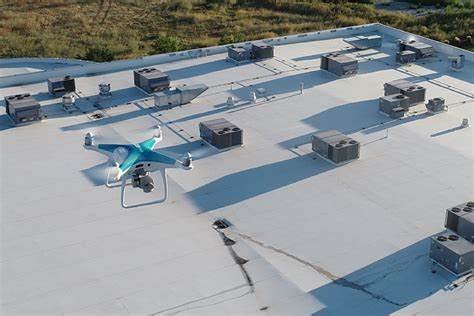The Future of Commercial Roofing: Jackson Global Insight into 2025.
The commercial roofing industry is undergoing a significant transformation, driven by the adoption of advanced technologies. Tools like drones, IoT-enabled systems, and project management software are no longer optional, they're essential for project managers, estimators, and operations teams looking to stay ahead in 2025.
Why Technology Matters in Roofing Today
As the construction industry becomes more digitized, roofing professionals are increasingly turning to technology to tackle age-old challenges. Construction companies that adopt digital tools see a 20-30% improvement in project efficiency and significant reductions in safety incidents.
For commercial roofing, these advancements can mean:
Faster Inspections: Drones equipped with high-resolution cameras now allow teams to conduct detailed roof inspections in hours instead of days.
Improved Accuracy: AI-powered software identifies issues like leaks or material degradation, minimizing human error.
Cost Savings: Proactive monitoring reduces the need for costly emergency repairs and downtime.
Key Technologies Shaping Commercial Roofing
Drones are no longer a novelty; they are a necessity for commercial roofing. These unmanned aerial vehicles can quickly survey large roofs, capturing images and video that help estimators and project managers create precise quotes. Insight from CEO of a leading commercial roofing firm showed "using drones has reduced our inspection times by 40% and improved safety by keeping our team off risky rooftops.”
In addition, the rise of IoT-enabled roofing has made it possible to install smart sensors that monitor roof health in real-time. These systems alert property managers to issues like leaks, temperature fluctuations, or moisture buildup, enabling swift action before minor problems escalate. Jackson Global Insight show that buildings equipped with smart roofing systems saw maintenance costs decrease by 25% over five years. Tools like Procore and Autodesk Construction Cloud help streamline operations. These platforms allow project managers to track materials, labor, and timelines in real-time, reducing delays and miscommunication. The shift towards technology has also shown a 25% reduction in material waste, aligning with many companies sustainability goals and companies using IoT technologies are 33% more likely to report customer satisfaction improvements.
The future of commercial roofing lies in technology. Adopting these tools isn’t just about improving efficiency, it’s about delivering better results for clients. Firms that leverage drones, smart systems, and advanced software are well-positioned to enhance client relationships, reduce costs, and stay ahead of the competition.
Join the conversation: are you leveraging these technologies in your projects? Share your experiences to join the experts on this topic.




